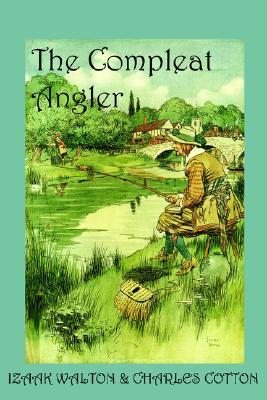The third day
byThe third day in The Compleat Angler begins with rising excitement as Venator eagerly looks forward to more than just fishing—he is also drawn to the peaceful rhythm and deeper meaning of the experience shared with Piscator. Rather than jumping straight into technique, the conversation takes a reflective turn. Piscator shares his concern over modern angling’s decline, blaming not nature, but people. He expresses frustration about the lack of effort to control otters and poachers who exploit rivers without restraint. The protective fishing fence-months—March through May—are meant to give fish time to spawn and recover, but these laws are often ignored. As a result, natural fish stocks have been damaged, making it harder for future anglers to enjoy what was once abundant. Piscator sees this not just as poor stewardship but a failure of community responsibility. He urges a return to respect for both seasons and the life cycles of the waters.
As they continue their walk, the conversation veers away from conservation and toward the culture of company they’ve recently kept. Piscator speaks candidly about the unpleasant behavior of their host, who indulged in inappropriate jokes and shallow conversation. Such talk, Piscator suggests, does little for the spirit. Instead, he praises wit with purpose—cleverness that enlightens rather than corrupts. He warns that crude speech around children especially can shape them in harmful ways, normalizing disrespect and irreverence. Piscator values discourse that is civil, modest, and enlightening—a reflection of virtue and good upbringing. To him, angling is not just about catching fish but about how one behaves while doing it. The sport is a stage for moral practice, where patience, modesty, and kindness can be observed and passed on through example.
The scene gently shifts from moral discussion back to action as they arrive at the water’s edge. Venator mentions Chub with hesitation, unsure of its value as a catch. Piscator, however, is confident that even this commonly dismissed fish can be turned into a fine meal. He challenges Venator’s expectations by pointing out a specific Chub swimming near a familiar patch. He promises to catch that exact fish and makes it a playful wager. With swift but graceful execution, he lands the Chub with a well-placed cast, fulfilling his promise in front of an astonished Venator. It’s not just a demonstration of skill but also of focus and intimacy with the environment. Piscator shows that good angling isn’t just about luck—it’s about awareness, timing, and respect for the natural world.
Once the Chub is secured, the anticipation turns toward preparing it. Piscator assures Venator that the fish will not disappoint, even if it isn’t seen as a delicacy by many. The key, he explains, lies in how it is cooked. Butter, herbs, and gentle fire will elevate the fish’s flavor, just as thoughtful conversation elevates a simple afternoon into something meaningful. He describes methods to reduce its wateriness and enrich its texture—skills learned not from cookbooks, but from observation and tradition. The comparison between fishing and cooking reflects a larger theme of craftsmanship, where knowledge passed through generations brings depth to everyday acts. Piscator is both chef and angler, turning each moment into a lesson. He doesn’t boast, but lets action speak—reminding Venator that mastery in life often lies in quiet confidence, not grand performance.
Their friendship deepens not only through shared goals, but also through a sense of balance. Piscator offers wisdom, while Venator brings enthusiasm and questions that keep the dialogue alive. Their exchange reflects a teacher-student relationship, though one grounded in mutual respect. Venator doesn’t simply follow—he learns, questions, and grows. Piscator, in turn, teaches by modeling behavior, reinforcing that skill without humility is hollow. The fish they catch, the meals they share, and the words they exchange all become parts of a bigger picture. It’s not just about angling—it’s about crafting a way of life rooted in harmony, mindfulness, and moral clarity. And for the modern reader, this scene still resonates, especially in an age where slowing down to observe nature is a rare gift.
Even today, the lessons of this chapter remain timely. Overfishing and environmental disregard still challenge river ecosystems around the world. The call for ethical practice and conservation echoes in modern movements for sustainable fishing. Piscator’s critique of lawless fishing and emphasis on restraint are reminders that nature’s balance depends on human responsibility. Likewise, the call for uplifting, clean, and intelligent conversation feels just as relevant in the digital age, where dialogue can either enrich or degrade social values. This chapter speaks to anyone who seeks peace in practice—whether by a quiet riverbank or in the everyday pursuit of purposeful living. Through patience, skill, and grace, a simple day becomes a meaningful experience worth remembering.


